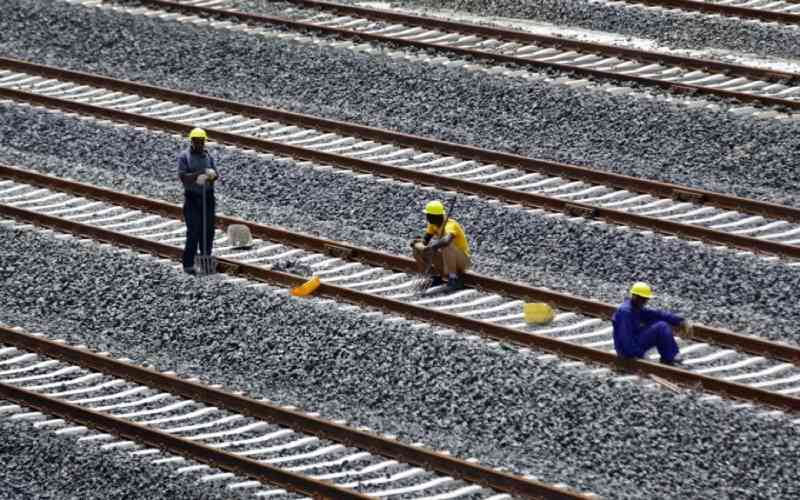×
The Standard e-Paper
Kenya’s Boldest Voice

Kenyan laborers work on the Nairobi-Mombasa railway, a Chinese project, near Nairobi on Nov. 23, 2016. The United States confirmed this week that it will take on its own infrastructure project in Zambia, the Democratic Republic of Congo, and Angola. [VOA]
This week, the U.S. State Department confirmed that Washington's plan to refurbish and extend the Lobito Corridor - a railway that will run through mineral-rich Zambia and the Democratic Republic of Congo to an Atlantic port in Angola - is moving full steam ahead.